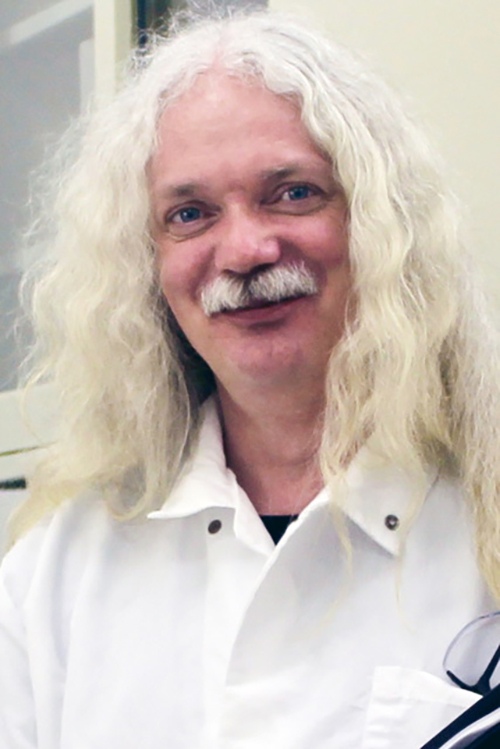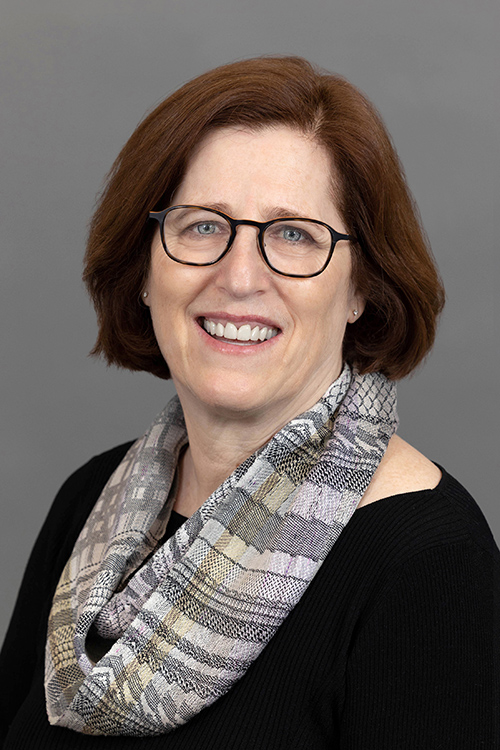 Dr. Simon Gilroy is a professor in the Department of Botany at the University of Wisconsin-Madison in the USA. He grew up in the United Kingdom and studied plant biology for his undergraduate degree at Cambridge University and for his Ph.D. at the University of Edinburgh in Scotland. He did a postdoc at the University of California-Berkeley before starting his own research group, first at The Pennsylvania State University before moving to Wisconsin. His laboratory uses a combination of molecular genetics and advanced imaging approaches to understand how plants sense and respond to their environment. This research centers on how plants react to a range of biotic and abiotic stresses such as gravity, touch, herbivory and flooding. Recent work has focused on how elements of a network of Ca2+, reactive oxygen species and electrical signals combine to support rapid, organism-wide signaling throughout the plant body. An additional research focus in the lab is dissecting similar signaling networks but in the plant systems responding to the unique stressors of spaceflight. For these projects, his group has flown multiple plant biology experiments to the International Space Station.
Dr. Simon Gilroy is a professor in the Department of Botany at the University of Wisconsin-Madison in the USA. He grew up in the United Kingdom and studied plant biology for his undergraduate degree at Cambridge University and for his Ph.D. at the University of Edinburgh in Scotland. He did a postdoc at the University of California-Berkeley before starting his own research group, first at The Pennsylvania State University before moving to Wisconsin. His laboratory uses a combination of molecular genetics and advanced imaging approaches to understand how plants sense and respond to their environment. This research centers on how plants react to a range of biotic and abiotic stresses such as gravity, touch, herbivory and flooding. Recent work has focused on how elements of a network of Ca2+, reactive oxygen species and electrical signals combine to support rapid, organism-wide signaling throughout the plant body. An additional research focus in the lab is dissecting similar signaling networks but in the plant systems responding to the unique stressors of spaceflight. For these projects, his group has flown multiple plant biology experiments to the International Space Station.
 Dr. Susan Marqusee is a Professor of Molecular & Cell Biology and Chemistry at the University of California, Berkeley and the Assistant Director overseeing Biological Sciences at the National Science Foundation. She received her A.B. in Physics and Chemistry from Cornell University in 1982, and her M.D. and Ph.D. from Stanford in 1990. After a post-doctoral fellowship at MIT, she joined the UC Berkeley faculty as Assistant Professor in 1992, advancing to Associate and Full Professor in 1998 and 2001, respectively. At Berkeley, Marqusee helped build the California Institute for Quantitative Biosciences (QB3), a state-wide institute with a mission to harness the quantitative sciences to solve problems in biology, educate the next generation of scientists, and stimulate the California economy. She served as the Director of QB3-Berkeley from 2009-2020. In 2023, Marqusee assumed the role of Assistant Director at the NSF overseeing the Directorate for Biological Sciences and currently splits her time between Northern Virginia and Berkeley.
Dr. Susan Marqusee is a Professor of Molecular & Cell Biology and Chemistry at the University of California, Berkeley and the Assistant Director overseeing Biological Sciences at the National Science Foundation. She received her A.B. in Physics and Chemistry from Cornell University in 1982, and her M.D. and Ph.D. from Stanford in 1990. After a post-doctoral fellowship at MIT, she joined the UC Berkeley faculty as Assistant Professor in 1992, advancing to Associate and Full Professor in 1998 and 2001, respectively. At Berkeley, Marqusee helped build the California Institute for Quantitative Biosciences (QB3), a state-wide institute with a mission to harness the quantitative sciences to solve problems in biology, educate the next generation of scientists, and stimulate the California economy. She served as the Director of QB3-Berkeley from 2009-2020. In 2023, Marqusee assumed the role of Assistant Director at the NSF overseeing the Directorate for Biological Sciences and currently splits her time between Northern Virginia and Berkeley.
Marqusee is one of the world’s top experimental scientists in the field of protein folding. She is known for many contributions, including the first de novo design of a short peptide that folds into a specific structure (alpha helix), the application of novel hydrogen exchange methods to measure rare partially structured conformers, and the mechanical manipulation of single protein molecules. Her work has produced the most detailed view of the energy landscape of a protein, has validated the hierarchical model of protein folding, and has provided the experimental foundations for theoreticians working in the area. Marqusee’s work impacts many other areas of research, ranging from the physical chemistry of macromolecules to the design of biologic therapeutics and therapeutics that prevent the aggregation of proteins which lead to common diseases such as Alzheimer’s. Marqusee is a member of the National Academy of Sciences, a fellow of the American Academy of Arts and Sciences, the American Association for the Advancement of Science, the Biophysical Society and ASBMB. She has been recognized with numerous awards including the ASBMB William Rose Award for Science and Mentorship and the Dorothy Crowfoot Hodgkins Award from the Protein Society. The San Francisco Business Times recognized Marqusee as one of the top 150 “Most Influential Women in the Bay Area” in both 2011 and 2012. Marqusee lives in Orinda with her husband. She has two adult daughters.